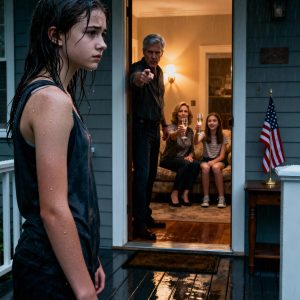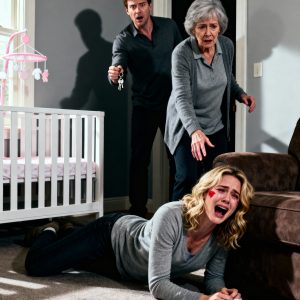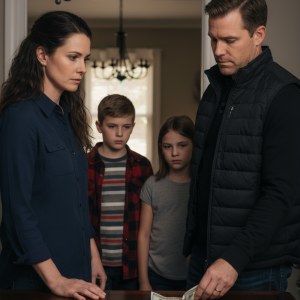When Valerie sold the single heirloom my late mother cherished—an antique Steinway upright—I thought I’d already felt the worst sting grief could offer. I was wrong; her callous act set off a cascade of consequences that would boomerang straight back to her.
Mom died when I was fourteen, cancer eating away at her until only a whisper of the vibrant woman who sang me jazz lullabies remained.
Even near the end—frail, pale, trembling—she’d gather enough strength each Sunday to press her fingers to the keys. The house filled with haunting melodies that felt like prayers woven into sound.
That piano was more than wood and wire—it was her laugh, her fears, the steady beat of her heart. When she passed, I asked for nothing but that instrument.
Dad—Thomas—promised it was mine forever and even added a clause to his will. For years it sat in the living room, a sacred silence anchoring our grief.
Then Valerie breezed into our lives: designer heels, peppermint‑mocha perfume, and a dazzling smile that didn’t quite reach her eyes. She arrived with her daughter, Brooke, and an arsenal of Pinterest home‑makeover ideas.
Her first words to me? “You look like a homeless Taylor Swift.” The friendship ship sank before it ever set sail.
Valerie’s “improvements” started small—new throw pillows, cinnamon candles—then escalated. Mom’s cookbooks vanished. Our family photos replaced by glossy shots of Dad and Valerie skiing in Aspen.
Still, she never touched the piano. I convinced myself she understood some lines were carved in bedrock.
I left for an out‑of‑state college desperate to breathe air that didn’t smell like someone else’s vanilla‑latte diffuser.
Coming home for spring break, I craved familiarity. I opened the front door… and the living room’s heart was missing. The piano—gone.
“Dad?” I called, voice wobbling. Valerie appeared, smoothie in hand. “Oh, that dusty eyesore? I sold it. Nobody played it.”
“That was my mother’s!” I choked, heat stinging my eyes. Valerie’s dismissive laugh felt like sandpaper on an open wound.
I texted Dad in a fury: Where is Mom’s piano? Valerie says it’s gone. No reply. My grief mutated into rage.
Dad returned two days later, suitcase wheels thumping over hardwood. Silence hung thick as smoke. I watched from the stairs as he stared at the empty space.
When Valerie chirped hello, he asked one question, voice brittle: “Where’s the piano?”
She breezed through excuses until Dad whispered, “I hid your birthday gift inside it—a Cartier necklace. Three thousand dollars.” The color drained from her cheeks.
She dialed the buyer in panic; the piano had already left the state. Her voice rose: “You have to find it!” Click. Silence.
That night, muffled shouting rattled their bedroom walls. Dad’s words cut through: “You never ask—you only take.”
Morning revealed Valerie’s closet half empty and a note: I need space. Don’t call. Dad folded it and slid it into the junk drawer like a receipt for a bad purchase.
A week later he sat me at the kitchen table. “I’m filing for divorce,” he said, eyes weary yet clearer than I’d seen in years.
He showed me paperwork—a trail of receipts, photos, appraisals—proof he’d tried to track the piano. “It may be gone forever,” he admitted.
We began rebuilding. Sunday breakfasts returned: pancakes drowning in syrup, like Mom used to make. Dad asked about my classes. He listened.
Months later, he called me to the garage. Under a tarp waited a secondhand upright—scratched, slightly wobbly, quietly beautiful.
“It’s not hers,” he said, voice gentle, “but it’s yours now.” My fingers found the keys. The first chord trembled… then steadied. Music, patient as dawn, returned.
Some losses stay losses. Yet sometimes life hands you a fresh sheet of music—notes you write together, measure by measure, until the house rings with new songs.





